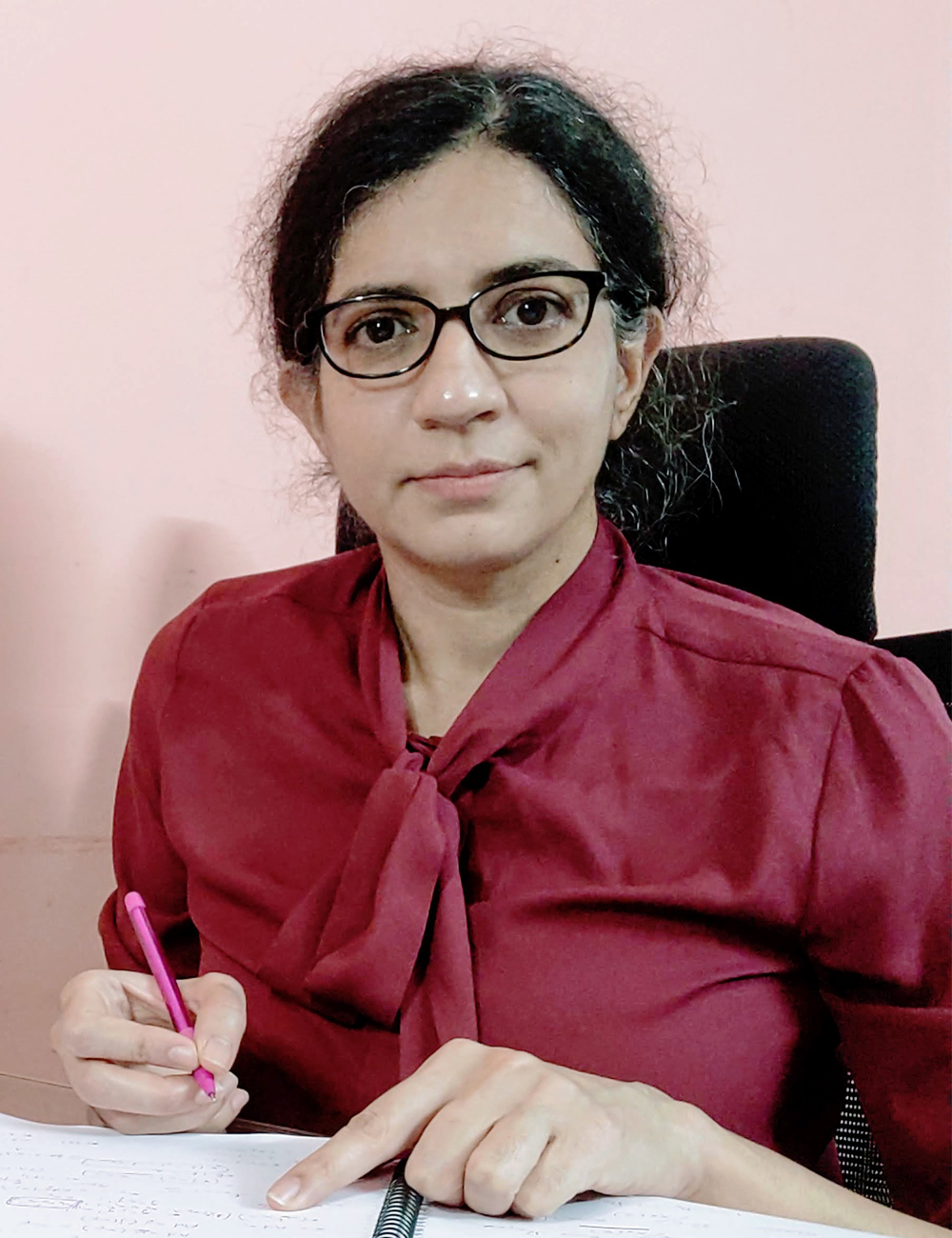Women Scientists in IISc – Dr. Radhika Ganapathy

————————–
Dr. Radhika Ganapathy is an Assistant Professor in the Department of Mathematics. She joined IISc in 2019. Her areas of research are Number theory and Representation theory. She completed her PhD at Purdue University and postdoc at the Institute of Advanced Study, Princeton, and University of British Columbia, Vancouver.
When did you first realise that you wanted to be a scientist?
I have liked mathematics since I was in high school, although the aspects of it that I like have changed/matured over time. At every stage I made choices that let me learn/pursue mathematics in greater depth and it eventually led me to a research career.
What attracted you to apply to and join IISc?
Teaching, in my view, is an integral part of research. In addition to the usual attractions like beautiful campus and excellent research environment, there are ample opportunities to teach interesting undergraduate and graduate Mathematics courses at IISc.
What will your research at IISc focus on?
My research interests broadly lie in Number theory and Representation theory. More specifically, I am interested in questions that arise when one tries to relate representation theory of groups in characteristic p with their characteristic 0 analogues.
Why did you choose this area of research?
I was broadly interested in Number theory when I joined graduate school. I got a beautiful introduction to my current area of research through a reading course with my PhD thesis advisor. There are lots of open problems in this subject, and in fact, I am still trying to understand some questions that came up when I was a graduate student!
What are the big unresolved questions in your field?
One of the arguably most important questions in Number theory is to understand the Galois group of the rational numbers and its representations. The Langlands program encompasses a vast set of conjectures that relate the representations of the Galois group of the rational numbers with objects that are more analytic in nature. These conjectures are very difficult and are among the most actively pursued programs in Number theory.
What is the most important advice you got that you think has helped you in your career?
On my first day at Purdue as a graduate student, the then graduate chair Professor Fabio Milner had a chat with us about the graduate programme. He said, “As far as pure talent goes, Purdue has seen the whole gamut, including geniuses, very good students and just average students. However, the ones who were successful were always the ones who worked hard.” That stuck with me.
If you had any women mentors or role models in science, who were they and what do you think you’ve learned most from them?
I didn’t have any women mentors or role models when I was younger. However, in recent years, I have had the opportunity to interact with some senior women mathematicians and have got a glimpse of their journey. These women chose to pursue a career in Mathematics when it was not the norm for a woman to have a career, let alone a scientific one. Now they are leaders in their fields of research, and the fact that they have accomplished this despite all the hardships is both inspiring and reassuring. One person I would like to specifically mention in this regard is Professor Marie-France Vigneras.
What is the most fulfilling thing about a life in science?
Unhindered freedom to pursue questions that fascinate me. The joy of exploring seemingly unfamiliar territories that these questions lead me to.
Click here for some of the Other Women in Science




